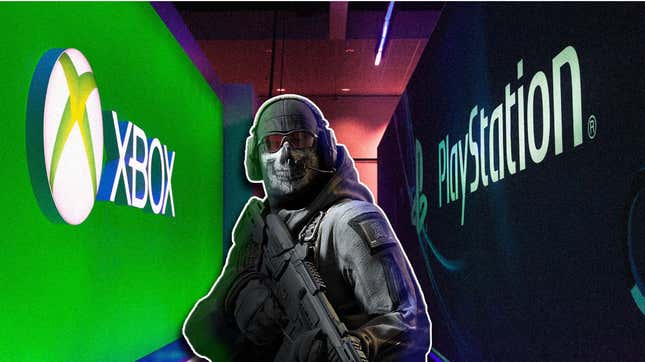
Microsoft and Sony have finally reached a deal for keeping Call of Duty on PlayStation once the Activision Blizzard merger goes through. The surprise agreement comes after months of fighting between the two companies and is a sign the acquisition is all but inevitable.
“We are pleased to announce that Microsoft and PlayStation have signed a binding agreement to keep Call of Duty on PlayStation following the acquisition of Activision Blizzard,” Microsoft Gaming CEO Phil Spencer tweeted on July 16. “We look forward to a future where players globally have more choice to play their favorite games.”
Advertisement
It’s not immediately clear what the terms of that agreement are, and whether they are similar to proposals Microsoft recently signed with Nintendo and other cloud gaming providers. In the past, Sony has paid Activision for special benefits relating to Call of Duty, including timed-exclusive content and special marketing rights. It was also revealed during the recent court battle over the deal that Activision had leveraged its partnership with Sony to negotiate better commission rates for the franchise on Xbox.
Advertisement
Advertisement
Read More: Sony Won’t Share PS6 Info With Call Of Duty Devs If Owned By Microsoft
Sony had been vigorously contesting Microsoft’s planned acquisition of the publisher in regulatory proceedings across Europe, the UK, and the U.S. After the recent legal defeat of the Federal Trade Commission’s attempt to block the deal, however, the PlayStation 5 maker seems to have decided it’s time to settle. Sony Interactive Entertainment CEO Jim Ryan had reportedly said in the past that his only interest was in blocking the deal.
Sony’s current agreement with Activision wasn’t set to expire until 2025, and the new agreement seems likely to carry through for at least the rest of the PS5’s life. Microosft has claimed all along that it’s not in its financial interest to make the series exclusive as the games generate billions in revenue on the competing platform.
Microsoft declined to comment. Sony did not immediately respond.






